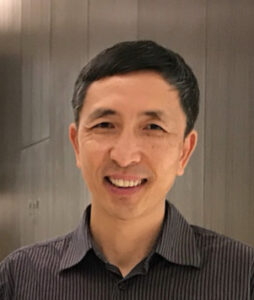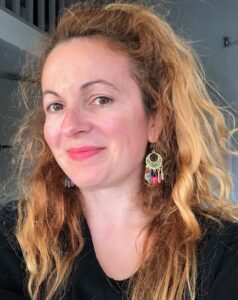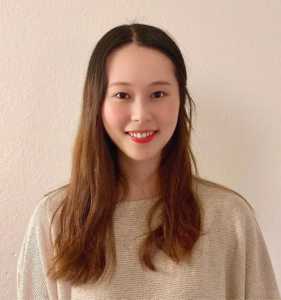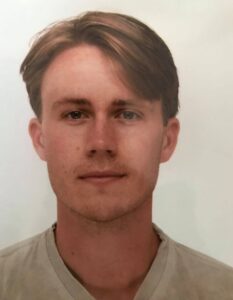Shaun Gallagher, PhD, Hon DPhil.
Shaun is the Lillian and Morrie Moss Professor of Excellence in Philosophy at the University of Memphis, and Professorial Fellow at the School of Liberal Arts, University of Wollongong (AU). He was a Humboldt Foundation Anneliese Maier Research Fellow (2012-18) and has held Honorary Professorships at Tromsø University (Norway); Durham (UK) and Copenhagen (DK), as well as visiting positions at Cambridge, Lyon, Paris, Berlin, Oxford, and Rome. His areas of research include phenomenology, philosophy of mind, embodied cognition, social cognition, and concepts of self. His publications include Action and Interaction (Oxford 2020); Performance/Art: The Venetian Lectures (Milan 2021); The Phenomenological Mind (Routledge 2021 – 3rd ed); Enactivist Interventions: Rethinking the Mind (Oxford 2017); The Neurophenomenology of Awe and Wonder (Palgrave Macmillan 2015); Phenomenology (Palgrave Macmillan 2012); How the Body Shapes the Mind (Oxford 2005); as editor, the Oxford Handbook of the Self (Oxford 2011); and co-editor The Oxford Handbook of 4E Cognition. His forthcoming book is The Self and its Disorders (Oxford 2023). He is editor-in-chief of the journal Phenomenology and the Cognitive Sciences.
Ping Li
Ping Li is Sin Wai Kin Professor in Humanities and Technology, Chair Professor of Neurolinguistics and Bilingual Studies, and Dean of the Faculty of Humanities at the Hong Kong Polytechnic University. He previously served as President of the Society for Computation in Psychology and Program Director at the U.S. National Science Foundation while being a Professor of Psychology, Linguistics, and Information Sciences at the Pennsylvania State University. Li’s research is focused on investigating the neurocognitive and computational bases of language acquisition, bilingualism, and reading comprehension in both children and adults. He uses cognitive neuroscience methods and digital technologies to study neuroplasticity and individual differences in learning and to understand the relationships among language, culture, technology, and the brain. Li is currently Editor-in-Chief of Brain and Language and Senior Editor of Cognitive Science. He is a Fellow of the American Association for the Advancement of Science (AAAS).
Sofia Teixeira
Sofia is an Assistant Professor in the Department of Informatics at the Faculty of Sciences, University of Lisbon and a Researcher at LASIGE, being the Co-Coordinator of the PhD Program in Complexity Sciences. She is also a member of the Executive Committee of the Network Science Society, a member of the council of the Complex Systems Society, the General Secretary of the Women in Network Science Society and the former Chair of the advisory board of yrCSS.
Additionally, Sofia is the Program Chair of Complenet 2023 (Aveiro, Portugal), Organization Chair of EPIA 2023 (Azores, Portugal), one of the organizers of the AMETHYST: gAME THeorY in complex SysTems, and an Associate Editor of SoftwareX.
Previously she was a Research Scientist at Hospital da Luz Learning Health, and a Collaborator at INESC-ID. Between August 2019 and December 2020 Sofia was a Postdoctoral Researcher at Indiana University Bloomington, and a Fellow at IU Network Science Institute (IUNI), Indiana, United States. Between 2013 – 2018 she was a teaching assistant at the Department of Computer Science and Engineering of Instituto Superior Técnico and between September 2018 – August 2019 Sofia was an Invited Assistant Professor at the Department of Informatics of Faculdade de Ciências da Universidade de Lisboa (FCUL). In 2017 (June and July), she was also invited as junior researcher in Kyushu University, Japan, contributing to the BIRD’s Research Project in Task 1 – Algorithms for Sequence Analysis – and Task 2 – Compression and Indexing Techniques for Repetitive Data.
Sofia has a PhD (July, 2019) in Information Systems and Computer Engineering from the Department of Computer Science and Engineering of Instituto Superior Técnico (IST), Universidade de Lisboa (Portugal).
Anna Ciaunica 
Dr Anna Ciaunica is a philosopher and cognitive scientist, currently Principal Investigator at the Centre for Philosophy of Science, Faculty of Science, University of Lisbon, Portugal.
Anna leads the Co-Embodied Self Lab (CELab) in Lisbon where she combines theoretical work with experimental approaches to investigate the relationship between (a)typical forms of self-consciousness, embodiment and social interactions in human and artificial agents.
She is currently the Lead Investigator of three interdisciplinary projects using methods from philosophy of mind, phenomenology, experimental psychology, cognitive and computational neuroscience and arts to investigate the bodily roots of self-awareness in humans in early life and beyond. She also looks at the multisensory modulation of the sense of self through bodily movements and action observation in depersonalisation and psychedelic experiences.
Anna is co-PI of a project looking at the relationship between dreams, sense of self, and self-detachment in clinical depersonalisation (with Prof Helge Gillmeister as PI). And a research team member of a project led by Prof Jane Aspell and Prof Bigna Lenggenhager exploring the sense of bodily self and dreams in depersonalisation.
Anna coordinates the Network for Embodied Consciousness and the Arts (NECTArs) – a collaborative platform bringing together artists, researchers, stakeholders, policy makers and people with lived experiences, aiming at fostering creative approaches to timely issues such as self-awareness and (dis)embodiment in our hyper-digitalized world.
Tania Alexandra Couto
Tania is a postdoc fellow awarded in the framework of the interself project led by Dr. Anna Ciaunica and Prof. Antonia Hamilton in the Faculty of Sciences of the University of Lisbon (CFCUL) and the University College of London. As background, she holds a Ph.D. in Biomedical Science (Emphasis on cognitive, affective, and social neuroscience) from the Faculty of Health Sciences at the University of Macau and a postdoc fellowship from the CUHK-Chinese University of Hong Kong, where she continued to develop her work in neuroplasticity and high-definition neuromodulation techniques. Her main interest relies on the interplay of science, art, and tech to disentangle the neural plasticity concept and enhance body-mind wellbeing.
Qihui Xu: 
Qihui Xu is a postdoctoral researcher in the Computational Neuroscience group at Basque Center on Cognition, Brain and Language (BCBL), where she works alongside Professor James Magnuson. Prior to joining BCBL, She earned her Ph.D. from the City University of New York (CUNY), where she worked with Professors Virginia Valian and Martin Chodorow.
Her research interests are in language acquisition and processing. She investigates these issues through interdisciplinary approaches, such as computational modeling, corpus analysis, and experimental methods. One of her key research goals is to explore and exploit new and emerging methods in bringing larger datasets to the understanding of human language and cognition.
Jesper Rørvig
Jesper is a master student of the Cognitive Science program at the University of Lisbon. As a background he holds a bachelor degree in Energy and Environmental Physics from the Norwegian University of Life Sciences. Jesper will write his thesis this year as a part of the Interself project, focusing on a study on human – robot interactions. His main interests are the interplay between the human mind and different technologies, and as such, focusing his thesis on the Interself project will be a great opportunity to investigate those aspects in an experimental setting.
